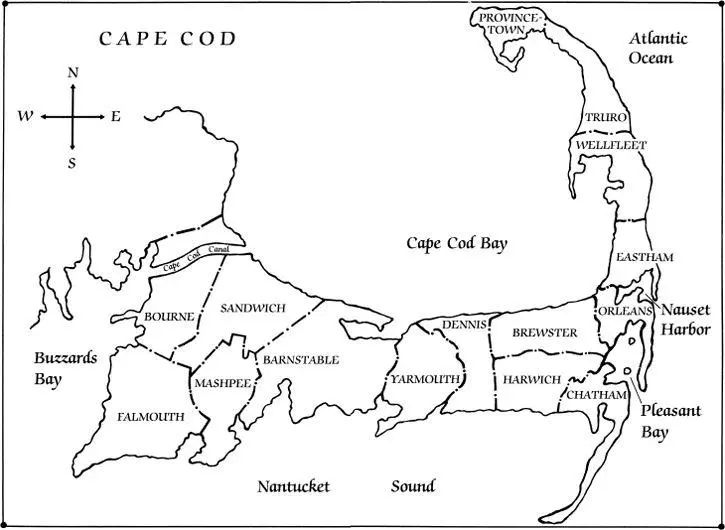The secret is in a lost book. The book is the log of the Mayflower. It reveals the truth about the first scandalous death in the New World, and perhaps something more. Yeah, it’s juicy. Enjoy it. But remember that while I aim for historical accuracy (this is one of the few novels ever offered for sale at the Plimoth Plantation museum bookstore) not everything that you’ll read here happened as it’s described… or even happened at all.
Looking back, I am happy to say that I have forgotten the fourteen-hour days, the seven-day weeks, and the last two months when I never left the house. A writer always forgets the hard part once the work is done.
Instead, I can recall dozens of experiences begun as research that became cherished memories. I see my wife and little children in the bright summer sun. We are wandering the paths and dunes of Wing Island in Brewster, the inspiration for the fictional Jack’s Island. Or I am standing with my father in the meetinghouse at Plimoth Plantation. We are marveling that they made their house of God a strong fortress as well.
The kids are grown now, and my father has passed, but I see all those scenes in the present tense because there is something perpetually present about the Cape. The cycles make it so.
Things have continued to change on Cape Cod since this book was published. More commuters ride the bus every day to Boston. More traffic lights flash. More condos and trophy houses rise in places where once there were small cottages. The struggle to accommodate the needs of a modern population in an ecologically fragile place goes on. The business cycle of boom, bust, and boom still turns.
But the earth still turns, too. The light falls exactly as it did when the Pilgrims walked the shore in spring or fall. The summer people come every Fourth of July. The tides rise and fall and sometimes confuse the pilot whales that stray too close to shore.
In the mild winter of 2011-2012, Cape Cod beaches saw several huge dolphin strandings. Why were the dolphins, close relatives of the creatures that appear in the first scene of this book, hurling themselves onto the beaches? Was it disease, global warming, or just another of nature’s relentless and sometimes heartless cycles? No one knows.
The generations may come and go, but on Cape Cod, the deepest mysteries remain, and so do the deepest memories.
William Martin
March 2012




Prologue
A.D. 1000
Strandings
Each year the whales went to the great bay. They followed the cold current south from seas where the ice never melted, south along coastlines of rock, past rivers and inlets, to the great bay that forever brimmed with life. Sometimes they stayed through a single tide, sometimes from one full moon to the next, and sometimes, for reasons that only the sea understood, the whales never left the great bay.
The season was changing on the day that the old bull led his herd round the sand hook that formed the eastern edge of the bay.
It had come time for them to fill their bellies and begin the journey to the breeding ground. The old bull did not need the weakening of the sunlight or the cooling of the waters to know this. He knew it because his ancestors had known it, because it was bred into him, in his backbone and his blood. And he knew that in the great bay, his herd had always fed well.
So he sent out sounds that spread through the water and came echoing back, allowing him to see without sight, to know the depth of the water and the slope of the beach, to sense the movement of a single fish at the bottom of the sea or the massing of a giant school a mile away.
And that was what the old bull sensed now.
He turned toward the school, and his herd turned with him. A hundred whales swam in his wake, linked by color and motion in a graceful seaborne dance, by the simple rule of survival to the fish before them, and by the deeper call of loyalty to the herd, their kin, and the old bull himself.
Then the sea was lit by a great flash. The fish felt the coming of the whales, and like a single frightened creature, they darted away. First east, then west, then south toward the shallows they went, and the sunlight flashed again and again on their silver sides.
The dance of the whales rose into a great black-backed wave and rolled, steady and certain, toward the shoal of fish.
1 comment